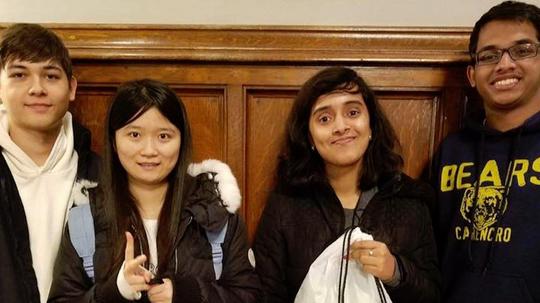
Did Denzel Washington endorse Trump? Was a DNC staffer murdered so he wouldn't meet with the FBI to testify against Hillary Clinton? Did Trump win the popular vote? Does cannabis cure cancer? The answer to all of these is no.
But you might have seen an article reporting these stories as fact: All are examples of fake news articles that have been shared on Facebook, or jumped to the top of Google's news feed.
Facebook and Google have recently come under fire for not doing enough to prevent fake news from spreading, and the impact false information may have had on voters this election. Though both sites have made small steps toward combatting the problem--Facebook is rolling out a feature where users can report fake news and both sites have made moves to block fake news sites from using its ad services--leaders say they're still figuring out how to tell real news from fake.
Control over distribution has become almost as important as the actual creation of content, and that has given Facebook a huge amount of power
Well, a handful of university students have developed a tool to verify news on Facebook--and it took them just 36 hours to create it.
A team of students, including two University of Illinois Urbana-Champaign students, working out of HackPrinceton this weekend created FiB, a chrome extension that uses artificial intelligence to analyze and verify content shared on Facebook.
FiB works to combat fake news in two ways. First, the extension combs through a user's Facebook news feed, verifying status updates, images and links using image recognition, keyword extraction, source verification and a Twitter search (to verify if a screenshot of a tweet is authentic). Based off the AI's assessment of facts presented in the story, the extension will put a small tag in the corner indicating how factual a story is (such as "Verified" or "Not Verified"), and if the story turns out to be false, the AI will try to locate a more verified source of information on the topic. Second, if someone is about to post content, the extension will use the same verification process to see if someone is about to post unverified information. If so, a user is notified via chatbot and can choose to keep their post or discard it. The Chrome extension is currently available for download, and the project is open source.

"In the current media landscape, control over distribution has become almost as important as the actual creation of content, and that has given Facebook a huge amount of power," the team wrote. "The impact that Facebook newsfeed has in the formation of opinions in the real world is so huge that it potentially affected the 2016 election decisions, however these [news feeds] were not completely accurate."
Qinglin Chen and Mark Craft, two sophomores at UIUC, developed the front end of product, while Nabanita De, a second-year master's student in computer science at the University of Massachusetts at Amherst, and Anant Goel, a freshman at Purdue University, created the backend. Chen said engineers at the hackathon (which Facebook sponsored) were interested in their product, and they'll continue to work on it outside of class.
"We are trying to improve it: instead of giving verified and not verified, we are planning to give the percentage of validity," Chen told Chicago Inno over email.
De said that they were inspired to create the extension not just because of the fake news that spread during the election, but also because of fake stories on cancer cures and other medical treatments.
"People in Facebook are so vulnerable along with their [confirmation] bias, they tend to give in to whatever they see because often the links and content on Facebook seem very believable," she said over email. "We want to change that."








